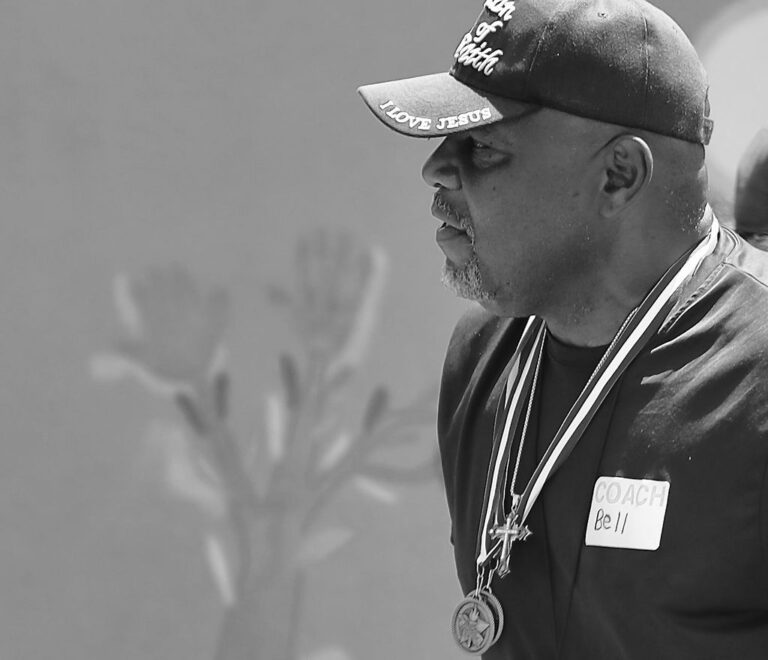Sports Coaches as Role Models: Inspiring the Next Generation Through Sports
Sports are more than just games—they’re opportunities for growth, learning, and character development. For students, the influence of a dedicated coach can leave a lasting impact on both their athletic skills and their overall development as individuals. Coaches serve as powerful role models, shaping students through their values, work ethic, and unwavering commitment. Let’s dive into how coaches inspire the next generation on and off the field.

Building Character Beyond Sports Skills While sports coaches teach the fundamentals of the game—whether it’s soccer, basketball, or track—they also help students build essential character traits. Through coaching, students learn about dedication, perseverance, and integrity. These traits are developed in practice, refined in competition, and carried with them into the classroom and life beyond school.
Coaches consistently reinforce the idea that success comes from hard work and determination, teaching students the value of effort and resilience. When faced with challenges or setbacks, whether it’s losing a game or struggling with a skill, coaches provide support and encourage students to push through difficulties. This sense of perseverance is a lesson that will serve them well beyond their years as athletes.
The Power of Leading by Example Coaches aren’t just instructors—they lead by example. The way a coach carries themselves, handles pressure, and communicates with their team can have a profound impact on the students they guide. By demonstrating respect, discipline, and a strong work ethic, coaches model behaviors that young athletes can emulate in their own lives.
For instance, when a coach shows how to handle both victory and defeat with humility and grace, students learn that sportsmanship matters as much as performance. Coaches who prioritize teamwork over individual glory teach their players the importance of collaboration, mutual respect, and being accountable to others. These qualities extend far beyond the sports field, equipping students with interpersonal skills that will benefit them throughout their lives.
Inspiring a Growth Mindset A great coach encourages students to adopt a growth mindset—the belief that improvement comes from effort, learning, and perseverance. Instead of focusing solely on winning, a coach who emphasizes progress and personal development teaches students that mistakes are opportunities for growth. This mindset is crucial for young athletes, as it helps them understand that failure is not the end, but a stepping stone to success.
Coaches foster this mindset by challenging students to continually push themselves, setting goals that encourage steady improvement. Whether it’s shaving a second off a race time or perfecting a particular technique, the coach is there every step of the way, guiding the student to achieve their personal best. This focus on improvement over perfection builds confidence and helps students carry a positive attitude into all areas of their lives.
Mentorship That Goes Beyond the Game For many students, the relationship with their coach goes beyond practices and games. Coaches often serve as mentors, offering guidance and support in areas outside of sports. Whether it’s helping a student navigate personal challenges, offering academic advice, or simply being a trusted confidant, coaches often become an important figure in a young person’s life.
This mentorship can have a lasting influence. The values that coaches instill—like responsibility, discipline, and respect—resonate with students long after they leave the field. Many athletes remember their coaches as people who believed in them, pushed them to achieve more, and inspired them to grow as individuals. In this way, a coach’s influence can extend into their players’ future careers, relationships, and personal aspirations.
Creating a Lasting Legacy A coach’s legacy is built not just on the number of games won, but on the lives they’ve touched. The lessons learned from a coach—about resilience, teamwork, leadership, and character—stick with students as they move on to new challenges. Former athletes often look back on their time in sports and remember their coach’s guidance as a key part of their development into well-rounded individuals.
For the next generation, sports coaches are more than role models—they’re influencers who help shape young lives. Their values, dedication, and commitment provide the framework for success both on the field and beyond. When we support and celebrate our coaches, we’re not just recognizing their contribution to athletics, but their vital role in shaping the future leaders of our communities.
At UFIT, we understand the immense value of coaches as mentors and role models in students’ lives. Our commitment to nurturing both athletic ability and character development ensures that coaches continue to inspire the next generation to reach their full potential, both as athletes and as individuals.
